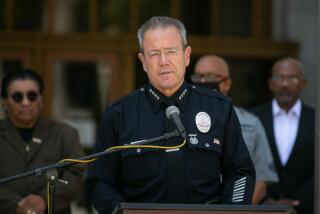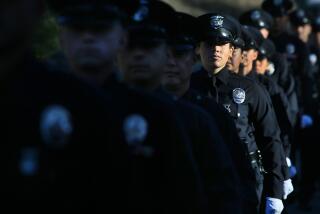Obama says White House won’t release Osama bin Laden photos
- Share via
The Obama administration will not release photos showing Osama bin Laden after he was killed by U.S. forces, the president has told CBS News in an interview to air Sunday on “60 Minutes.”
Obama said that after seeing the photos himself, and based on DNA testing, he is “absolutely certain” that Bin Laden is dead. But he said that releasing the photos could pose a national security risk.
“It is important for us to make sure that very graphic photos of somebody who was shot in the head are not floating around as an incitement to additional violence or as a propaganda tool. That’s not who we are. We don’t trot out this stuff as trophies,” he told CBS’ Steve Kroft, according to a transcript read by White House spokesman Jay Carney.
“The fact of the matter is, this was somebody who was deserving of the justice that he received. And I think Americans and people around the world are glad that he is gone. But we don’t need to spike the football,” Obama said.
Obama also told Kroft that he discussed the decision with Secretary of Defense Robert M. Gates and Secretary of State Hillary Rodham Clinton, as well as his intelligence team, “and they all agree.”
Photos: The death of Osama bin Laden
Asked about those who have expressed doubts that Bin Laden was killed, Obama said: “There is no doubt that Bin Laden is dead. Certainly there is no doubt among Al Qaeda members that he is dead. And so we don’t think that a photograph in and of itself is going to make any difference.”
The decision follows broad debate within the administration about whether to distribute what has been described as a “gruesome” photo in order to prove that the Al Qaeda leader is dead.
CIA director Leon Panetta had said in interviews Tuesday, however, that the photos would ultimately be made public.
Several lawmakers who saw a photo said earlier Wednesday that the White House should not release them.
“I don’t want to make the job of our troops serving in places like Iraq and Afghanistan any harder than it already is,” said Rep. Mike Rogers, chair of the House Intelligence Committee. “The risks of release outweigh the benefits. Conspiracy theorists around the world will just claim the photos are doctored anyway, and there is a real risk that releasing the photos will only serve to inflame public opinion in the Middle East.”
michael.memoli@latimes.com
More to Read
Sign up for Essential California
The most important California stories and recommendations in your inbox every morning.
You may occasionally receive promotional content from the Los Angeles Times.














